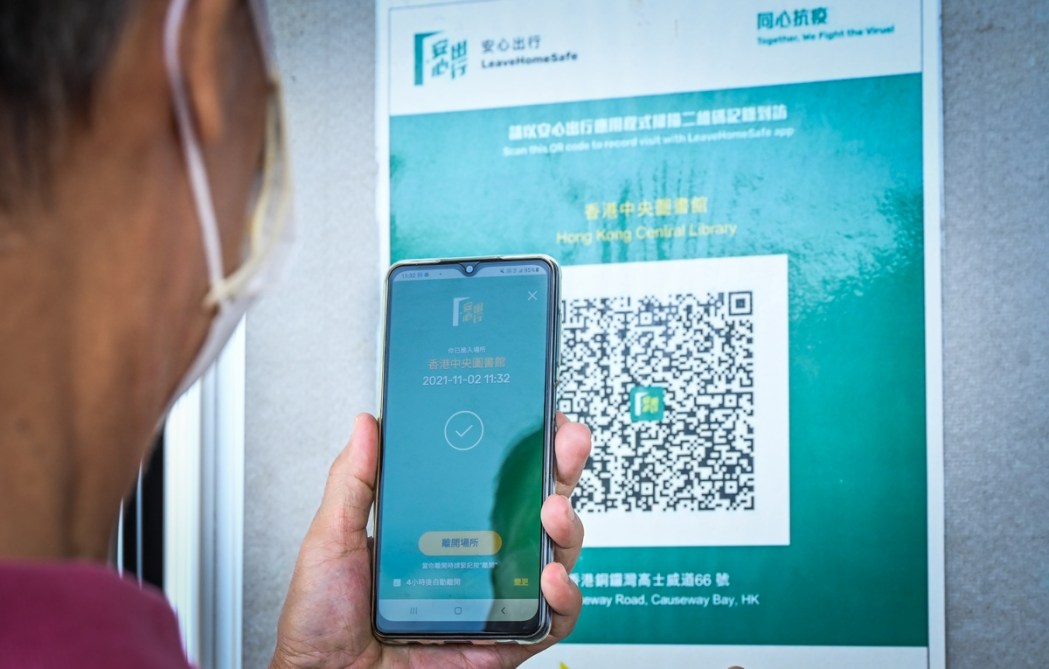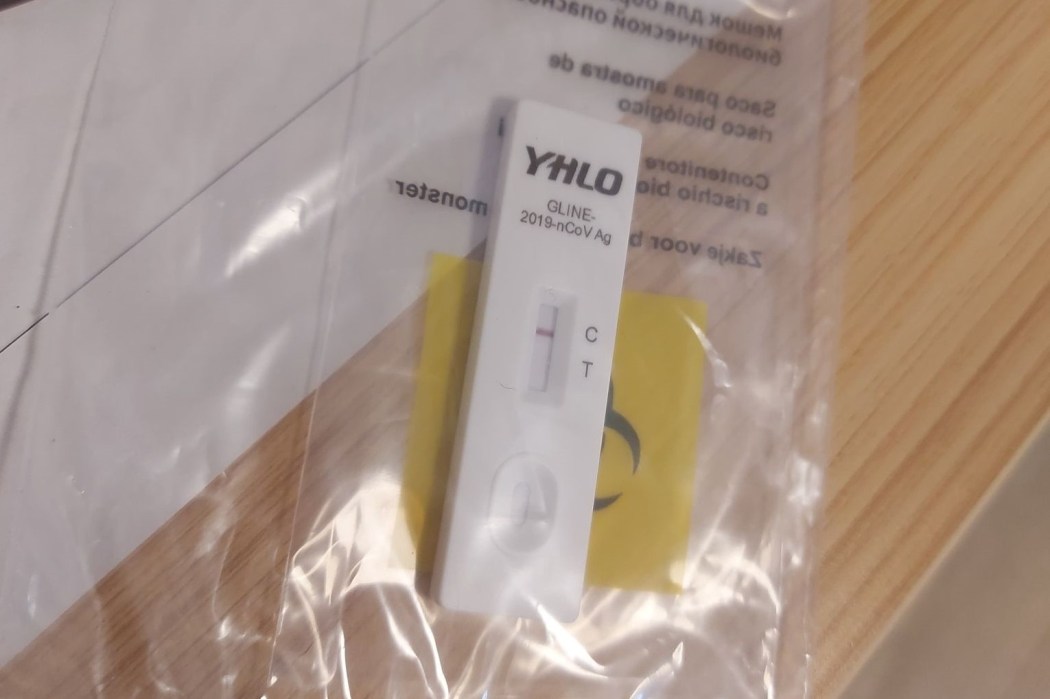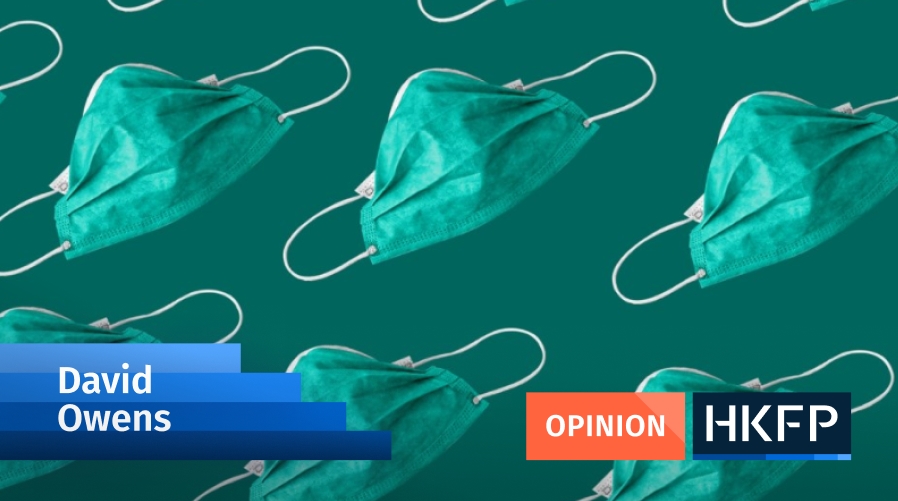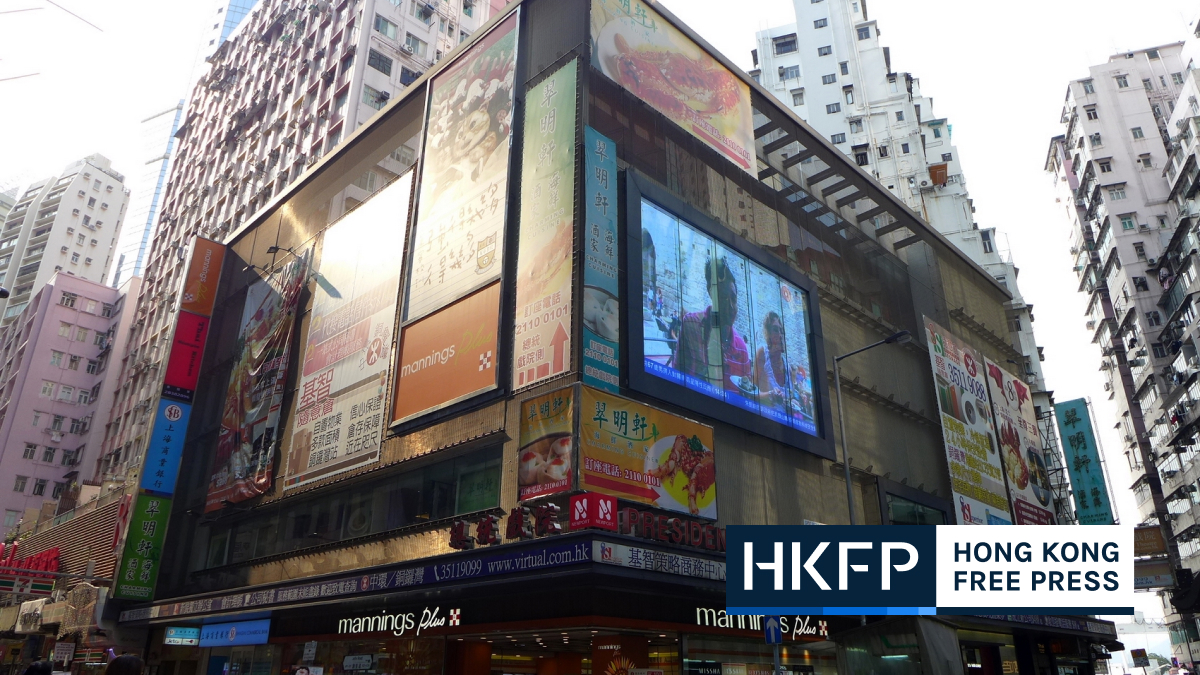Hong Kong’s contact tracing mobile application LeaveHomeSafe has stopped alerting users about confirmed Covid-19 cases who visited restaurants users have frequented in order to “leave testing opportunities to those truly in need,” the Centre for Health Protection (CHP) said on Sunday.
Previously, users would receive notifications from the government’s mobile app if they had been to any eateries visited by customers later diagnosed with Covid-19. Albert Au, principal medical and health officer from the CHP, said on Sunday that the government stopped notifying users as there was “a bottleneck in nucleic acid tests” in the city.

“However, it does not mean that citizens should be negligent if they do not receive notifications [from the application]. We still recommend those with symptoms get tested,” said Au.
If citizens fail to scan a QR code using the mobile app at scheduled premises, such as restaurants, shopping malls, and supermarkets, they could face a fine of HK$5,000.
Hong Kong reported 26,026 new infections and 83 deaths on Sunday. Since the beginning of the pandemic over two years ago, the city has confirmed 164,981 cases and 717 deaths.
Shortened quarantine period
The quarantine period for Covid-19 patients and their close contacts has been shortened to seven days if they have received at least two vaccine doses and test negative on both the sixth and seventh day of quarantine at government facilities or at home.
However, according to the government’s announcement on Saturday, if fully vaccinated patients and close contacts test positive in either one of their two tests on the sixth or seventh day of quarantine, they will have to continue the isolation period.

The day that citizens receive their tests is considered the first day of their quarantine. And if they do not have a record of undergoing testing, the day they receive their test results will be considered the first day of quarantine.
The government aims to isolate or hospitalise all who test positive for Covid-19, including mild cases.
Online declaration system for self-testing
People who test positive for Covid-19 with a self-testing kit will be able to upload their test results to an online system, and will not have to undergo a confirmation nucleic acid test in order to “avoid resource duplication and time delay.” The details of the system will be announced later.

Requirements of compulsory testing orders were also changed, according to a government announcement last Friday.
For residents who are under lockdowns, the subsequent compulsory tests will be replaced with self-testing. The government will also distribute self-testing kits as a replacement for compulsory testing orders at locations with higher transmission risk, such as buildings with multiple cases.
Similar arrangements will also be made for staff members of high-risk and high-exposure groups, such as people working in quarantine hotels.
Instead of completing a compulsory test every two or three days, they will be asked to test once every week. The government will also distribute self-testing kits to workers via industry practitioners so that they can test more frequently between compulsory tests.
Support HKFP | Policies & Ethics | Error/typo? | Contact Us | Newsletter | Transparency & Annual Report | Apps
Help safeguard press freedom & keep HKFP free for all readers by supporting our team















